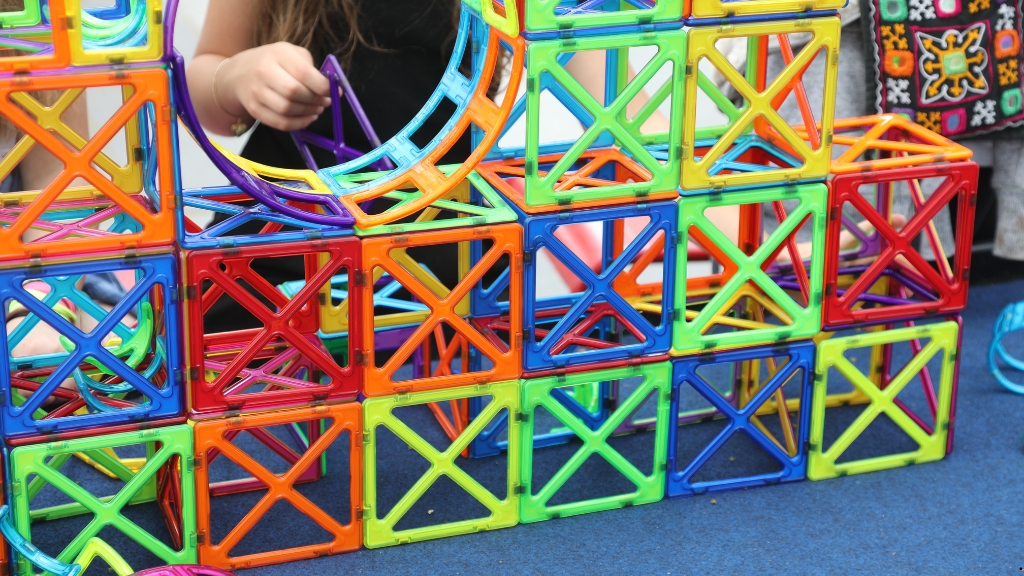
Unlocking Creativity: How Construction Play Builds Problem-Solving and Confidence
When I think about childhood play, construction toys instantly come to mind. There's something magical about stacking blocks and creating structures that sparks creativity and imagination. But beyond the fun, construction play serves as a powerful tool for developing essential life skills. It’s not just about building; it’s about building confidence and honing problem-solving abilities.
As kids engage in construction play, they encounter challenges that require critical thinking and innovative solutions. Each time they knock down a tower or adjust a design, they're learning resilience and adaptability. This hands-on experience lays a foundation for future problem-solving skills that will serve them well in school and beyond. In this article, I’ll explore how construction play nurtures these vital traits and why it’s crucial for a child's development.
Overview of Construction Play
Construction play involves children using materials to create structures, promoting hands-on engagement. This type of play commonly includes blocks, LEGO sets, and various building kits. Construction play offers unique opportunities for children to experiment with concepts of balance, gravity, symmetry, and spatial awareness.
Children actively engage in trial and error during construction play, learning to navigate challenges and solve problems. For instance, when a tower topples, they reconsider their design, enhancing their problem-solving skills. This iterative process fosters resilience as they learn to adapt strategies and revise plans.
Collaboration often occurs in construction play, whether through cooperative building with peers or sharing materials. Such interactions cultivate communication skills and teamwork, critical aspects of problem-solving. Through discussions about design choices and collective building, children learn to express ideas and negotiate solutions effectively.
Additionally, construction play nurtures creativity and innovation. Children envision projects, transforming abstract ideas into tangible forms. This creative expression builds confidence, as they see their visions materialize. Each completed structure reinforces a sense of accomplishment, encouraging children to tackle more complex challenges in the future.
Ultimately, construction play serves as a powerful tool for holistic development, supporting essential skills that shape children's future capabilities.
The Role of Problem-Solving in Construction Play
Problem-solving stands as a fundamental aspect of construction play. Engaging in this type of play allows children to tackle a variety of challenges, enhancing their cognitive and social abilities simultaneously.
Cognitive Development
Cognitive development thrives through construction play. Children encounter obstacles while building, which prompts them to think critically and creatively. They assess materials, evaluate structural integrity, and hypothesize outcomes, reinforcing logical reasoning. For example, when a tower collapses, children analyze why it failed and devise new strategies to enhance stability. This process sharpens their analytical skills, promoting deeper understanding of cause and effect. Problem-solving during these play scenarios encourages perseverance, enabling children to embrace challenges rather than shy away from them.
Social Interaction
Social interaction plays a crucial role in problem-solving during construction play. Collaborating with peers fosters communication skills and teamwork, vital components of effective problem-solving. Children share ideas and negotiate solutions, learning to appreciate different perspectives. For instance, while building a community with blocks, they discuss the best layout or structure, encouraging compromise and collaboration. These interactions not only enhance their social skills but also develop conflict resolution strategies, preparing them for future group dynamics. Engaging in collaborative construction projects nurtures a sense of belonging, boosting their confidence as they build together.
Building Confidence Through Play
Construction play significantly enhances children's confidence. Engaging in creative projects allows them to explore their ideas freely, gaining assurance as they see results from their efforts.
Encouragement of Creativity
Creativity flourishes in construction play as children design and build unique structures. Using blocks, LEGO sets, and various materials sparks their imagination. Each creation represents an original concept, reinforcing their ability to think outside the box. As they manipulate materials and experiment with different designs, children realize their potential for creativity, boosting their self-esteem. Completing a project provides a sense of accomplishment, encouraging further innovative exploration.
Risk-Taking and Resilience
Construction play encourages risk-taking, enabling children to experiment with structures and ideas without fear of failure. They challenge themselves by testing balance and exploring new designs. When a project doesn’t go as planned, they learn to adapt and reassess their strategies, fostering resilience. This trial-and-error approach builds their confidence, as they understand that mistakes often lead to valuable lessons. Over time, resilient problem-solving skills develop through perseverance and experimentation, equipping children with the confidence to tackle increasingly complex challenges.
Case Studies and Real-Life Examples
Case studies highlight the impact of construction play on children's development. Research conducted by the National Association for the Education of Young Children (NAEYC) illustrates how construction play enhances problem-solving skills. In one study, a group of preschoolers built a bridge using blocks. The children faced structural challenges and needed to iterate their designs. As they tested their bridges, they demonstrated critical thinking and adaptability, ultimately constructing a functional design that spanned a designated space.
In another case, a summer camp focused on construction play reported significant confidence gains among participants. Campers engaged in team-building activities involving architectural challenges. Upon completion, they presented their projects. The act of sharing their builds with peers and receiving positive feedback boosted their self-esteem. Researchers noted that campers displayed more social interactions and collaborative skills post-activity.
A school district in California implemented a construction-based curriculum across grades K-5. Teachers observed student engagement rise, with many learners eager to solve complex building tasks. An example involved students working together to create a model city. This project required them to negotiate roles, share materials, and apply mathematical concepts. The district noted a 20% improvement in students’ problem-solving assessments after the initiative.
Furthermore, a private preschool incorporated LEGO play into their daily routine. Staff reported that children who engaged in building activities became more confident in expressing ideas and resolving conflicts. Specifically, one child who initially struggled with sharing emerged as a leader during group projects, showing his peers how to collaborate effectively.
These examples underscore the transformative power of construction play. Children not only build structures but also essential skills that prepare them for future challenges while boosting their confidence and enhancing their problem-solving abilities.
Conclusion
Construction play is more than just fun; it's a vital part of a child's growth. I’ve seen firsthand how it cultivates problem-solving skills and boosts confidence in young minds. As children build and experiment they learn to face challenges head-on and develop resilience.
The hands-on nature of construction play encourages creativity and collaboration. Watching kids work together to bring their ideas to life is truly inspiring. Each structure they create not only reflects their imagination but also reinforces their ability to tackle future challenges with confidence.
Embracing construction play in early development can lay a strong foundation for lifelong skills. It’s a powerful way to prepare children for success in school and beyond.


